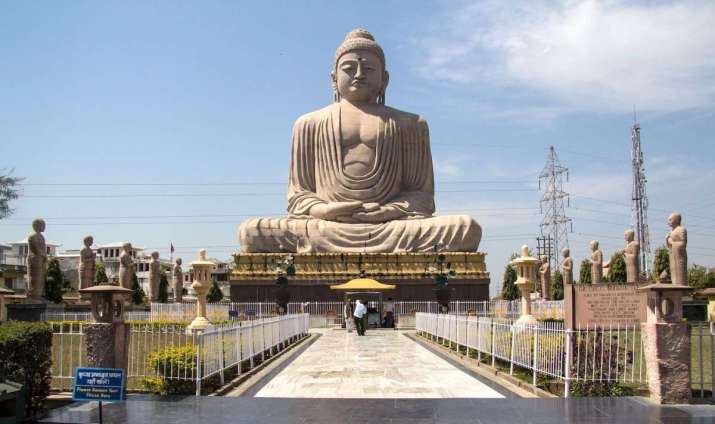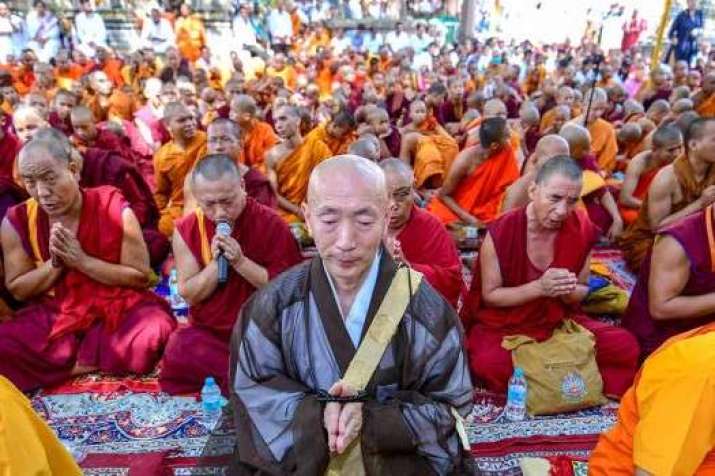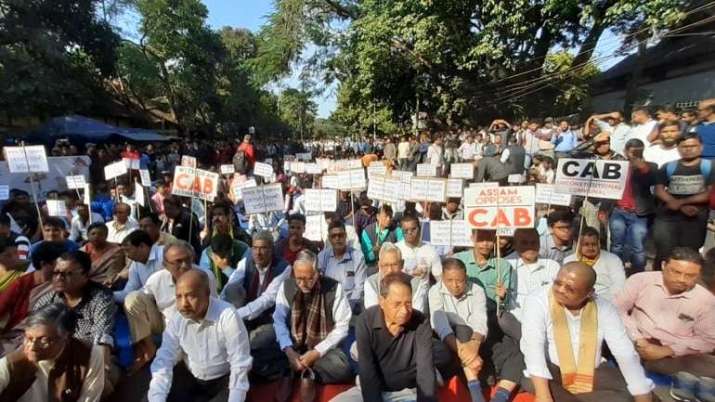
India’s recent move to pass a contentious law granting citizenship to illegal immigrants from six persecuted religious minorities—but excluding Muslims—has alarmed some Buddhists in the state of Bihar, especially in the Buddhist enclave of Bodh Gaya, who fear the implications the bill may have for them, with the proposed rollout of a National Register of Citizens (NRC) apparently imminent.
The Citizenship Amendment Bill (CAB), passed by India’s government on 11 December and approved by President Ram Nath Kovind on 12 December, aims to fast-track citizenship for Buddhist, Christian, Hindu, Jain, Parsi, and Sikh migrants from Muslim-majority Afghanistan, Bangladesh, and Pakistan, amending a 64-year-old citizenship law that prohibits illegal migrants from becoming Indian citizens. The Indian government, led by the Hindu nationalist Bharatiya Janata Party (BJP), maintains that the new law will provide people fleeing religious persecution with sanctuary, but critics say the bill is part of a BJP agenda to marginalize Muslims in India.
The CAB enactment also raises the specter of a nationwide NRC, which requires residents to show proof of family residency going back decades. Originally drawn up to identify and control illegal immigrants in the northeastern state of Assam, which borders Bhutan to the north and Bangladesh to the south, senior leaders in India are now seeking to apply the register at the national level. If implemented, those who are excluded from the NRC would be divided into two categories: Muslim migrants, who would be deemed illegal, and all other migrants, who would have been deemed illegal but for the CAB—but only if they can show their country of origin as Afghanistan, Bangladesh, or Pakistan.
There is considerable uncertainty over the status of many Tibetans in Bhihar, said Tenzin Lama, a senior Buddhist monk from Tibet now based in Bodh Gaya. “There is an uncertainty over our status. If the situation allows, we may consider going back to Tibet,” he said. (Hindustan Times)
According to census data for 2011, Bihar is home to 25,453 Buddhists, representing 0.02 per cent of the state’s total population, but there are also thousands of Buddhists from other countries who have lived for several generations in the area where the historical Buddha is believed to have attained enlightenment.

“Nearly 80,000 Tibetans had followed [the] Dalai Lama to our country through the Himalayas at that time and while many settled at Dharamsala in Himachal Pradesh, some also preferred to stay at Bodh Gaya,” said Buddhist monk Priyapal Bhante. “They have been here for over three to four generations. Also many among the generation which migrated from Tibet may no longer be alive.” (Hindustan Times)
Priyapal Bhante explained that many of the families were worried about their ability to prove their status in India, as they might have difficulty providing documentary evidence of their forebears and their lineage.
“They have already been living a life of the refugees and have gone through the painful experience of dislocation and exodus and once again they have before them the threat of deportation due to the NRC exercise,” he said, adding that the recent impact of the bill in Assam offered a sobering reflection of national sentiment. (Hindustan Times)
The passing of the CAB has seen a wave of protests that have so far left six people dead in Hyderabad, Kolkata, Mumbai, and New Delhi, and elsewhere in the country, due to the exclusion of Muslims from the list, as well as reports of suicides among those held in Indian detention camps. Protests have been particularly defiant in Assam, with residents fearing that an influx of immigrants will bring an ethnic and demographic shift—regardless of religion. The Narendra Modi government’s pledge to roll out the NRC nationwide could see meaning millions lose their residency and the chance of citizenship.
Together, the NRC and CAB have the “potential of transforming India into a majoritarian polity with gradations of citizenship rights,” said sociologist Niraja Gopal Jaya. (BBC News)

Priyapal Bhante noted that Tibetans in India already face significant hurdles dealing with the authorities and almost endless reams of bureaucracy. “Getting [an] Indian passport has already been a herculean task for them. I know many Tibetans whose applications for passport[s] were rejected by the competent authorities at [the] passport office,” he said. (Hindustan Times)
Tibetans are not the only people likely to be affected by the NRC. Bodh Gaya is home to almost 50 temples and monasteries representing the Buddhist traditions of many countries and regions, including Bangladesh, Bhutan, Cambodia, China, Japan, Laos, Myanmar, Nepal, South Korea, Sri Lanka, Taiwan, Thailand, Tibet, and Vietnam, accommodating hundreds of male and female monastics.
Bihar State Tourism Development Corporation official Mukesh Kumar, observed that the population of Buddhists staying at Bodh Gaya on tourist visas was not insignificant. “Many of them have been here for over a decade,” he said. (Hindustan Times)
See more
Worried about NRC, Buddhists in Bodh Gaya fear ‘difficult days’ ahead (Hindustan Times)
India passes citizenship law singling out Muslims, sparking deadly protests (CBS News)
All you need to know about proposed pan-India NRC (The Economic Times)
Citizenship Amendment Bill: India’s new ‘anti-Muslim’ law explained (BBC)
India’s new Citizenship Act and national register of citizens are both inspired by “paranoia” (Quartz)












